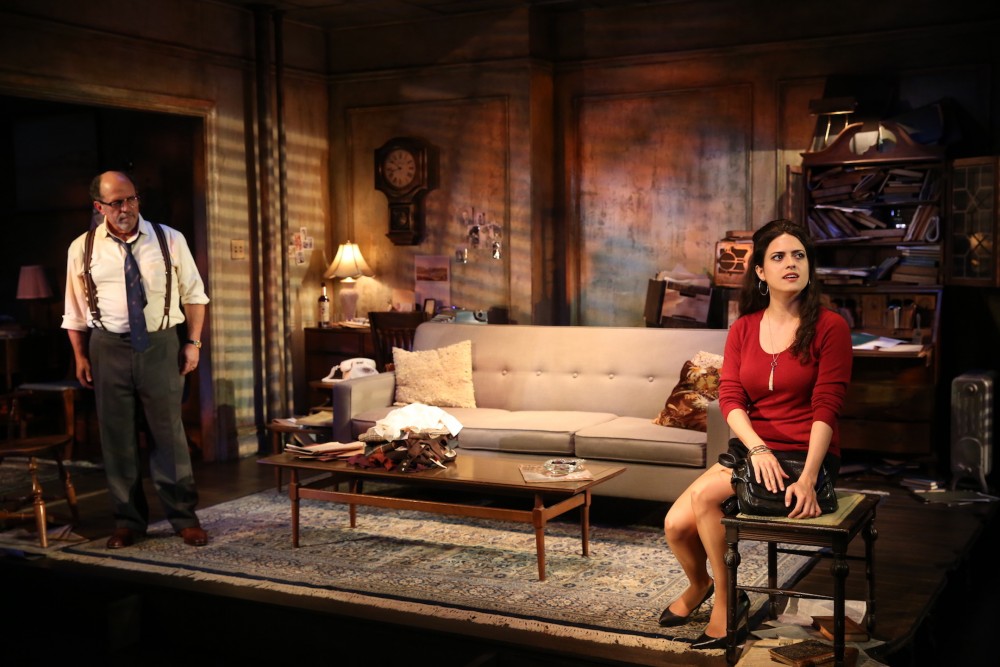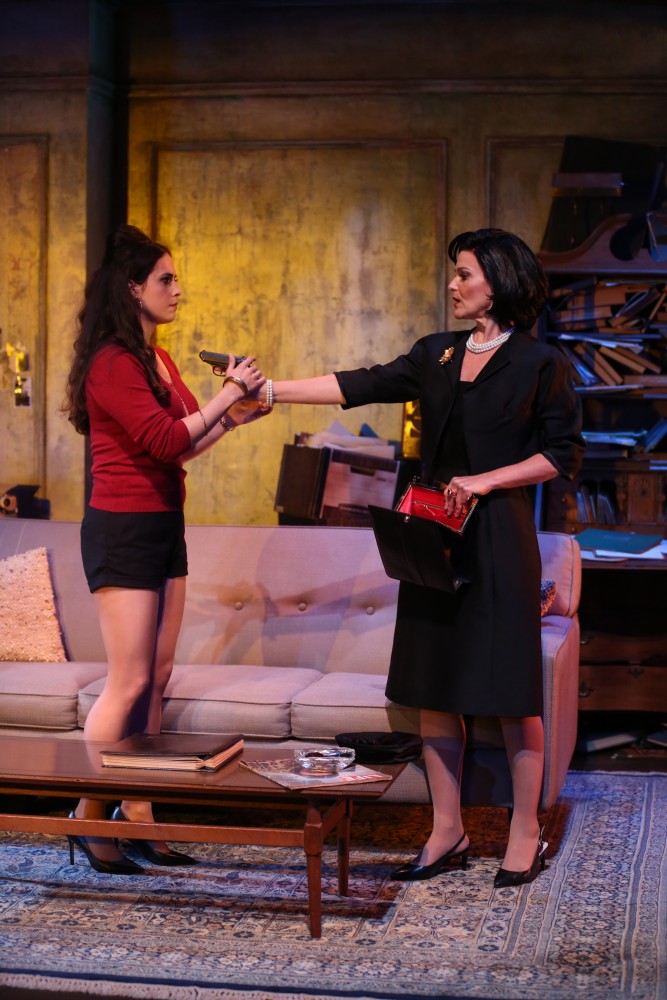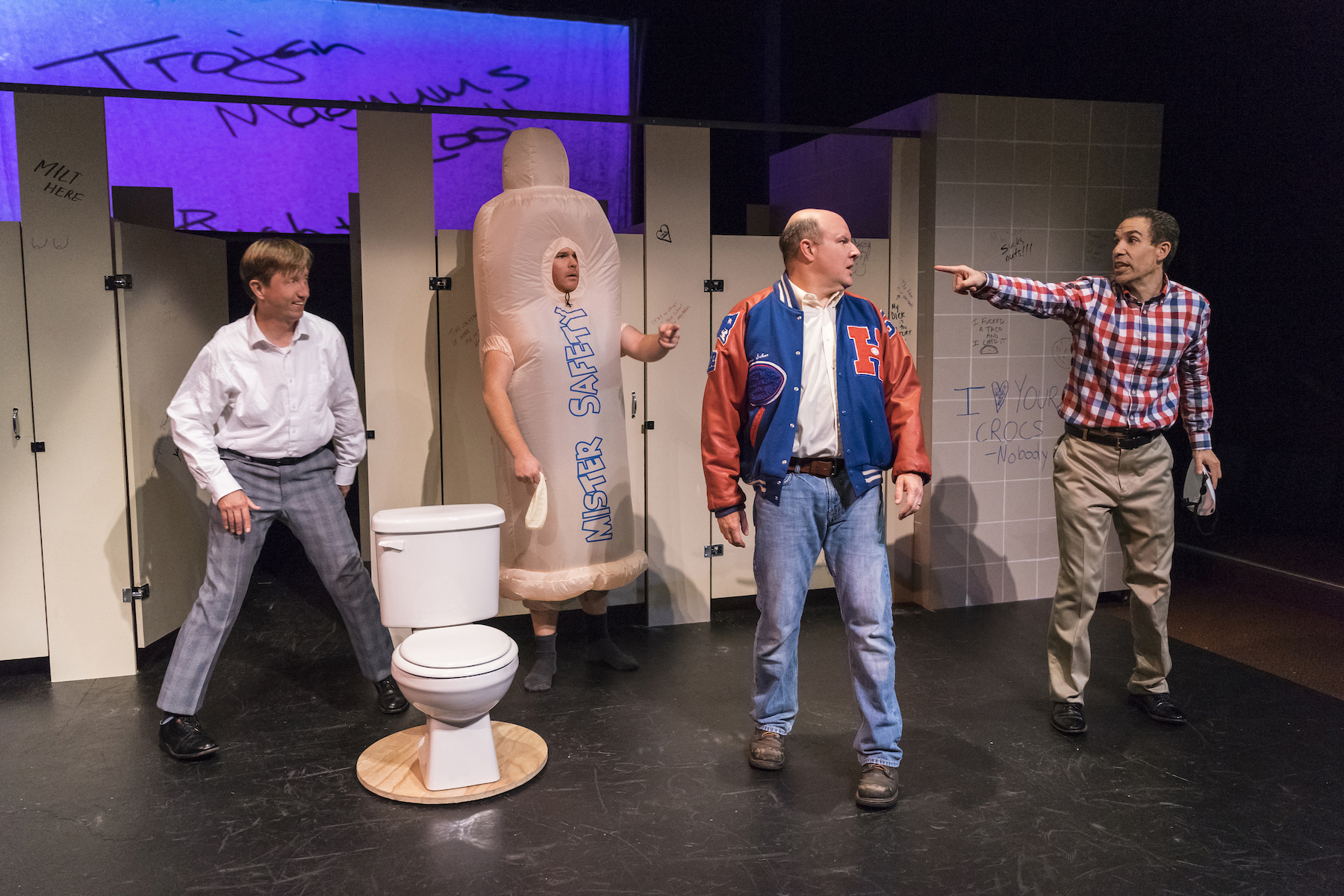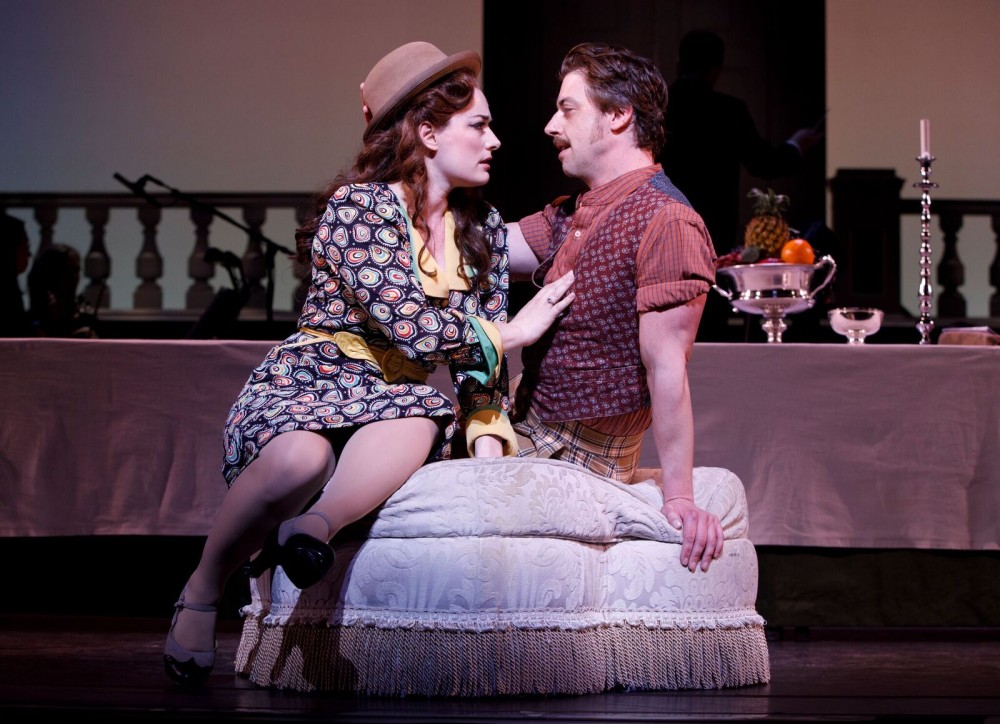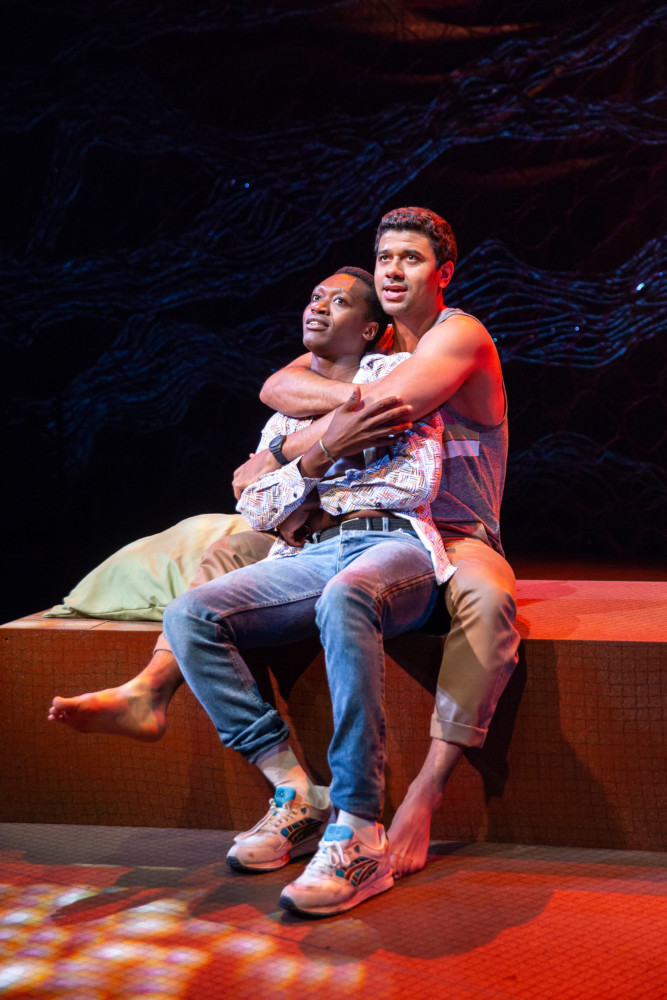by Samuel L. Leiter
Despite this show’s poorly punctuated slogan, “There’s smoke, and fire,” anyone worried that Come Light My Cigarette might expose them to secondhand smoke can breathe easy; tobacco—even of the herbal variety—has no role in it. There are, though, countless other reasons to place a red circle with a diagonal slash over this crushingly banal, dramatically inept, dully plotted, musically bland attempt at a noirish, three-character musical. For that friend of mine who keeps a Bomb of the Year list, have I got a bomb for you!
The credits say it was “Written & Directed By ARNOLD L. COHEN,” but neither the program nor the press materials identify this gentleman. If I were Cohen, whoever that might be, I’d also be covering my tracks after charging people money to spend 90 minutes watching his amateurish twaddle.
As structured, Come Light My Cigarette is more like two plays than one. The first is about the sick relationship between a young woman named Vikki (Erikka Walsh) and her father, Kevin (Michael J. Farina), an accountant who’s just buried his wife. The pistol-packing Vikki, now a 25-year-old Broadway star called Stella Hart—although, oddly, dressed like the hooker she became after running away at 16—comes home in the wake of her mom’s death to settle her score with daddy, who frequently raped her when she was a kid.
Kevin, as revealed in a monologue consisting of an endless series of painfully unfunny phone calls from family and clients following his wife’s funeral, is an obnoxious anti-Semite, proud (in the most ignorant way) of his Irish Catholicism; he may have slept with his daughter but he admits being gay. In fact, this former altar boy even has a soft spot for the priests who took advantage of him. Following Vikki’s departure, he’s left alone to ponder his fate; there’s a blackout and no more is heard of him.
When the lights rise again, Vikki, still dressed in the same whorish duds of short shorts and high heels, is living in Kevin’s apartment, where she, too, gets an unexpected visitor. It’s her glamorous ex-lover, Danielle (Faye Tuckerman), the powerful Broadway producer who helped make Vikki a star, there to reignite her dead affair with Vikki. And, like her protégé, she too packs a rod. The women bemoan their relationship, with lots of mutual “bitches” tossed around, until the show comes grinding to a stop. What any of it has to do with the play’s first part, or anything else, for that matter, isn’t worth the trouble figuring out.
Cohen often provides exposition through monologues spoken to no one in particular rather than in dialogue between characters; just as bad, his sentences are larded with pseudo-poetic claptrap in place of believable language. Here’s an example from a speech of Vikki’s to Danielle, chosen at random: “The loneliest city in the world is a bar, with me there waiting for a woman, any woman, to catch my attention and whisper yes, with her eyes, and I go off, in the dark, ‘til the night dies.” We’ll let the lyrics rest in peace.
Cohen appears to be seeking a bluesy, jazzy, film noir style; the period is indeterminate but the look suggests the early 50s, from the typewriter to the white rotary phone. The inexplicably shabby apartment (realistically designed by Craig Napoliello, who also did the costumes), with its transom over the door, is reminiscent of Sam Spade’s office, and Ross Graham’s shadowy lighting helps conjure up the cinematic mood.
These promising features are wasted, though, on a dance-free musical whose score—limited to a piano played by music director Mason Griffin—is an assortment of twenty jazz-inflected tunes, a couple sounding uncomfortably close to Kurt Weill originals. The spacing of the songs is also odd; after Vikki’s opening number, it takes so long for another one the show seems to have forgotten it’s a musical. When that second song ends, the others come bunched more closely together. All are solos; nowhere do two voices share a moment.
The performers do their best to sell the songs and make their innocuous words sound real, but Cohen’s flaccid direction (and sometimes puzzling choices) fails to inspire any sense of conflict or suspense. Most of his songs are sung not to other characters but directly to the audience, which weakens whatever dramatic action is implicit in the script.
There may not be smoke or fire in Come Light My Cigarette. Fury, though, at least the critical kind, lies just across the footlights.
Photos: Michael Blase
Come Light My Cigarette
Theatre at St. Clement’s
423 W. 46th St., NYC
Through September 3


